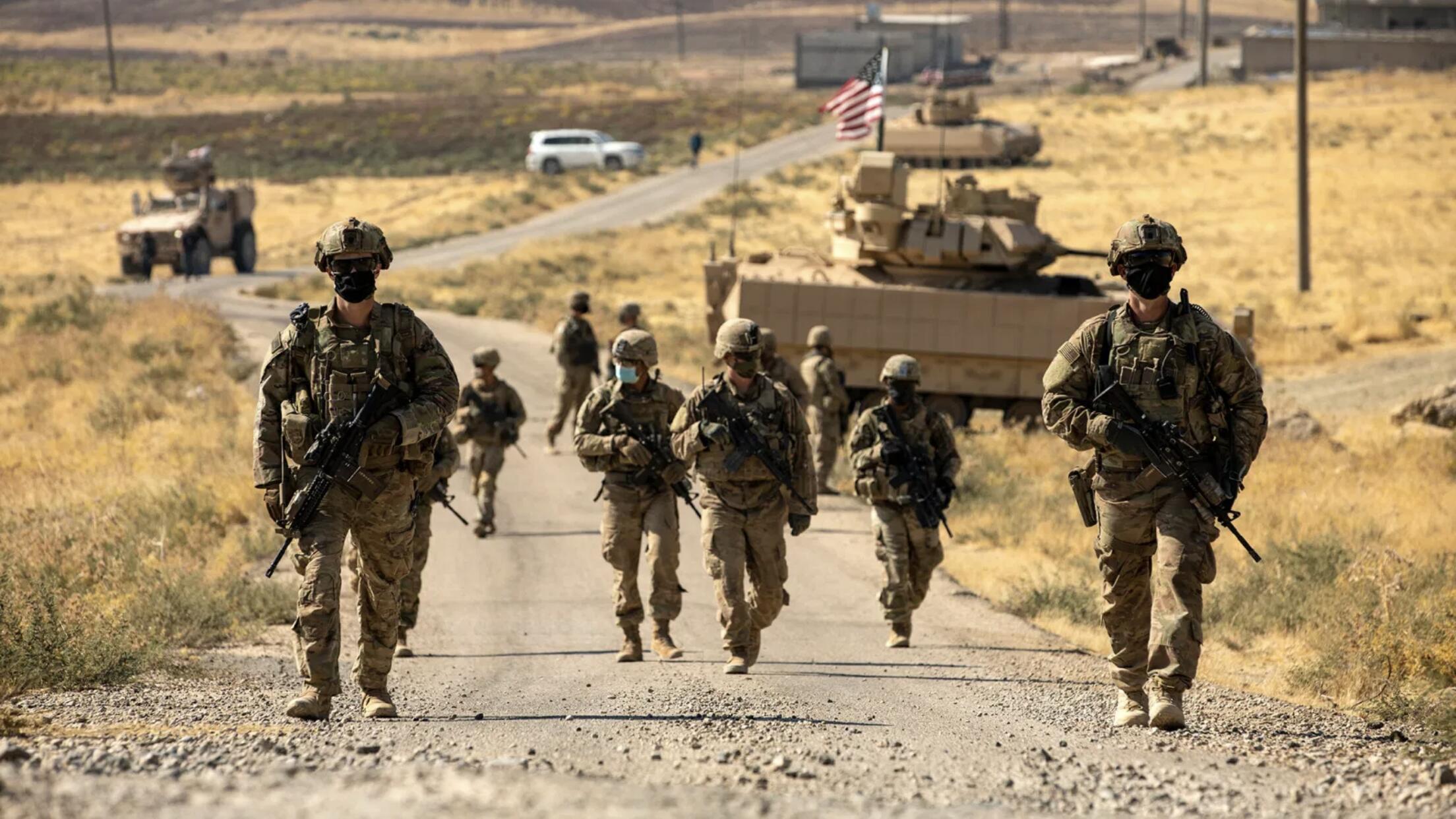Mostafa Najafi told the Strategic Council on Foreign Relations that American officials have hinted that their troops would be remaining in the north east of Syria until an unspecified period of time under the excuse of the fight against Daesh and support for local forces that are combating Daesh terrorists in the east of the Euphrates.
He added that Daesh terrorism has been almost exterminated in Syria except for some parts of Badiyah al-Sham and therefore Daesh cannot constitute an excuse for foreign countries to prolong their presence in Syria.
The crisis of justifying the US military presence in Syria
Najafi said that Daesh terrorism was declared eliminated by General Soleimani.
“After the end of the reign of Daesh in Syria, Americans and the international coalition for the fight against Daesh faced the crisis of justifying their military presence in Syria. However, the United States is keen on remaining there and it does not appear that the Biden administration would create a tangible change in the policy of the United States in Syria.”
Referring to the decision by Donald Trump to withdraw American troops from Syria and the many criticisms by various American officials against such a decision, Najafi said that “many believed that differences between Trump and his national security team led by John Bolton began when Trump announced his decision to withdraw American troops from Syria and some US foreign policy and national security officials as well as Pentagon authorities said such a decision could pose strategic dangers to the US interests and would lead to increased influence of Iran and Russia in Syria. Therefore, Trump withdrew his decision to cut forces in Syria.”
The US long strategy to remain in Syria
Najafi said Americans have focused their attention on the future of Syria and want to remain there.
“Definitely, Americans will have a long strategy to continue their presence in the north of Syria because the present Syria is not the Syria of the past anyway and any foreign interventionist would try to exert and maintain influence and presence in some parts of Syria. For example, the Turks are present and have stationed military forces in the north of Syria. They have even constructed a military base there.”
Referring to the geographical position where Americans are currently present, he said “if we consider the three corridors which link Iran and Iraq to Syria, almost two of them are in the control of Americans. Therefore Americans are not interested in withdrawing from Syria and are in fact transferring military equipment on a daily basis from Iraq to Syria and vice versa.”
This expert of West Asia affairs pointed to the role played by powers in Syria and said “until 2018, Russia had influence in the West of Syria in Tartoos and Latakia. However, after 2018, they are inclining towards the east of Syria where Iran has influence. During the past three months, they have covertly entered Abu Kamal near the border between Iraq and Syria. It seems that the presence of Russians in the east of Syria especially near the Iraqi-Syrian border could create competition with the Americans.”
Najafi added that Russia considers Abu Kamal and Qaem axis as the gate of entry to Iraq, saying that Russians are perhaps gaining the opportunity to enter Iraq from the east of Syria and exert influence in the political and security sphere of Iraq as the resistance groups are exerting pressure on Americans to leave Iraq.
The US wants parts of the Syrian soil for bargaining
He said it is highly unlikely that Americans would create a tangible change in their policies in Syria except in connection with an increase in their minimum supports for the Kurds.
“Definitely the Americans have a long term plan for Syria however we have not yet entered political transition in Syria as political talks have been suspended and there is no diplomatic activity but Americans want to have parts of Syria for their future bargaining on the political arrangements of Syria and Syrian President Bashar Assad.”
He added that Americans want to stabilize their presence in Syria and keep some of their troops in the north and south of the country so that they could exploit it in the appropriate time in political bargaining on the political future of Syria. Americans, he said, cannot have a purposeful political activity in the future of Syria without having military presence there.
This expert of West Asian affairs referred to the efforts of the United States to play a role in the political trends of Syria, saying that there are two trends on the political future and diplomatic bargaining of Syria namely the Astana and Geneva processes.
“The Astana Process compared to the Geneva Process has been more active and fruitful. In fact the Astana Process is complementary to the Geneva Process and Iran, Russia and Turkey have taken the initiative and are playing a leading role in Syria talks to overshadow the Geneva Process.”
He said there is no bright prospect in connection with the relevant negotiations on the political future of Syria, adding that “Now the issue of Syria is not vital and significant for the main players. Any foreign player has considered a subject for itself and has somehow recognized Bashar Assad and his government. On the negotiations concerning the political future of Syria, the main players lack the necessary determination for these talks to yield.”
The US approach to the political trends is influenced by relations between Iran and Syria
Najafi analyzed the US approach to political trends in Syria and said “it seems that the US approach to Syria is greatly dependent on the relations between the Biden administration and Iran and Russia. If there is tension and rivalry, it would be difficult to interact. For example, if Americans want to continue and heighten their tension with the Russians, it would be difficult for the US to have political activism in Syria. ”










0 Comments